How Canada’s Trump-style candidate blew a 20-point polling lead
Pierre Poilievre’s populist message was resonating until Trump’s antagonism pushed Canadians toward former central banker

Pierre Poilievre, leader of Canada’s Conservative Party, seemed set to become Canada’s next prime minister at the start of 2025.
For more than a year, his party had a 20-point lead in opinion polls over then-Prime Minister Justin Trudeau’s Liberal Party and momentum toward a landslide victory.
Then came President Trump.

Trump’s trade war and threats to annex Canada have up-ended Canadian politics. In less than three months, the Conservatives have gone from heavy favourites to underdogs in an election set for April 28.
Poilievre’s problem is bad timing. His preferred foil, the unpopular Trudeau, resigned in March, when Trump’s belligerent rhetoric sparked a patriotic backlash that rallied Canadians around their government. The Conservatives trail the Liberals by five points, according to polling aggregator 338Canada.
Poilievre, who has promised to shake up Canada if he wins, is using the wrong playbook for the moment, conservative strategists said.
“With the amount of disruption and change coming at the country from Trump, the election has shifted from disruption to safe hands,” said Kory Teneycke, a conservative strategist who led Doug Ford’s re-election campaign to lead Ontario, Canada’s most populous province.
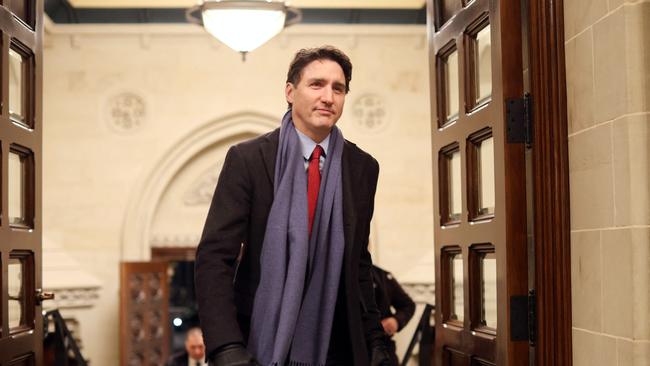
The beneficiary of Canadians’ flight to safety is Mark Carney, the former head of the Canadian and UK central banks who succeeded Trudeau in March as Liberal Party leader and prime minister. He has pitched himself as a steady leader who guided Canada through the 2008 financial crisis and the U.K. through Brexit.
“I have a lot of experience with crises,” Carney said on a French-language talk show April 13. “The situation is difficult, but that’s the reason I’m here.”
Voters seem to be buying his pitch. An April 16 poll by Abacus Data showed 43 per cent of respondents thought Carney was the better candidate to handle Trump, compared with 36 per cent who chose Poilievre.
Poilievre, a 45-year-old career politician, used many of the same populist themes as Trump to win the conservative leadership in 2022. He supported truckers who blockaded Ottawa in 2022 to protest Covid-19 lockdowns. He promised to slash taxes, shrink the government, end Liberals’ climate-change policies and end “wokeism” in the Canadian military. His election slogans, such as “Canada First,” echo Trump’s.
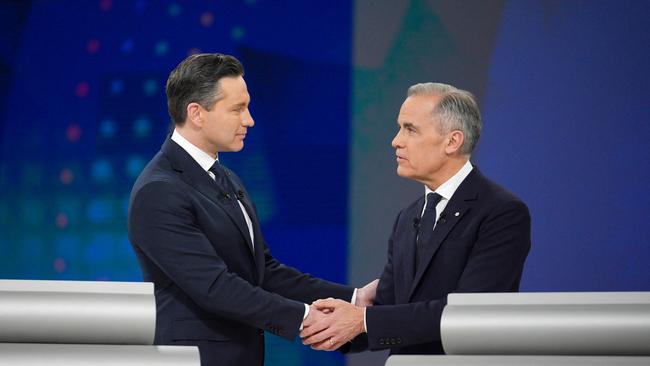
His focus on economic problems and relentless criticisms that the Liberal Party had neglected inflation and real-life concerns of Canadians in favour of progressive projects drove his approval numbers higher than any conservative leader in decades. But a campaign that mimics Trump’s is making it difficult for Poilievre to break through with voters he needs to secure a majority, said David Coletto, Abacus Data’s chief executive officer.
“They think he’s like Trump, or what he says and how he says it is just turning them off in the same way Trump turns them off,” Coletto said.
Poilievre has been addressing the Trump question in interviews. He contrasted his background as the adopted son of schoolteachers with Trump’s wealthy upbringing.
“We don’t really share anything in common,” Poilievre said in an April 13 interview on the Knowledge Project, a Canadian podcast. “He was born into a very wealthy millionaire family, and I was born in very humble beginnings. There’s a lot of policies that he has that I disagree with.”
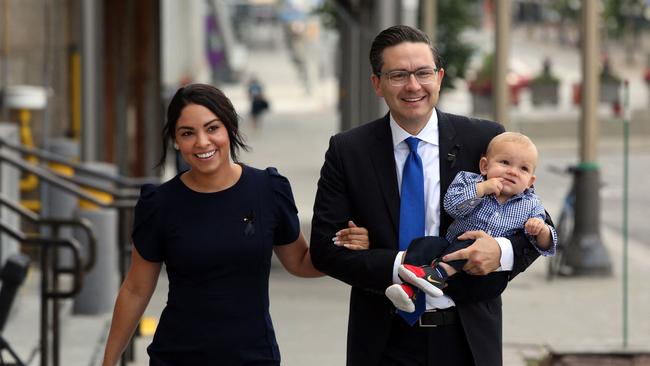
During a party leaders’ debate on April 17, Poilievre attacked Carney as a Trudeau clone. He said Canadians can’t afford to hand the Liberal Party another term, arguing households are struggling with higher grocery bills and housing costs have escalated. “Carney is not change,” Poilievre said. “Justin Trudeau made exactly the same promises.”
Poilievre has tried to keep the focus on the economy and the cost of living. He describes the past 10 years, when Canada’s productivity fell and gross domestic product per capita stagnated, as the “lost Liberal decade.” He has criticised Liberals for copying his plan to undo their unpopular consumer carbon tax and adopting policies similar to Conservative plans to cut taxes and spend more on the military.
Poilievre is using populist tactics to attack Carney. “Global elites like Mark Carney and the Liberals sell out our industrial base to send jobs to China and the United States while leaving our workers behind,” Poilievre said in a speech outside Toronto earlier this month.
Like Trump during his 2016 run, Poilievre’s campaign has celebrated the large crowds gathering at his campaign rallies. The Conservative Party estimated that 15,000 people watched Poilievre speak in Edmonton, Alberta, on April 7.
Poilievre’s best hope might lie in someone he can’t control: Trump. While he has maintained some tariffs on Canadian goods, the president has narrowed his focus on global adversaries to China, brightening the Conservatives’ fortunes. Canadians, too, are thinking more about the cost of living and less about Trump, said the Angus Reid Institute, a polling group.
“The tariff issue has been living rent-free in Canadians’ heads for months,” said Shachi Kurl, Angus Reid’s president. “But something else is now taking up more space — that is, worries over the impacts of those tariffs on their household wallets.”
Wall Street Journal

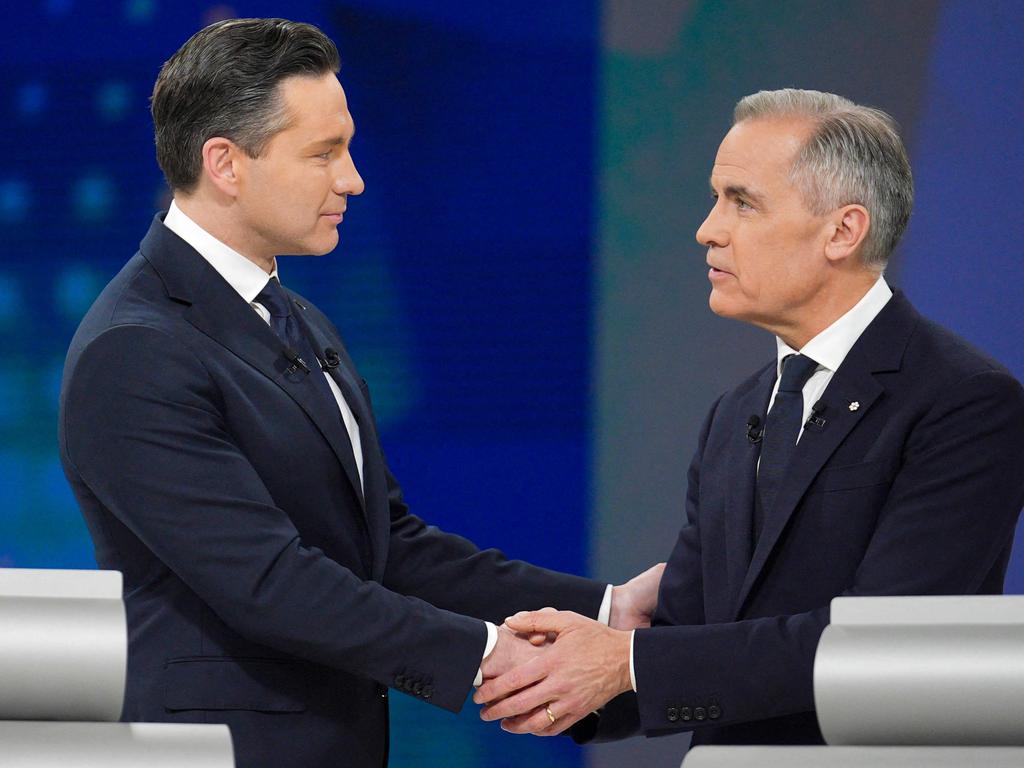


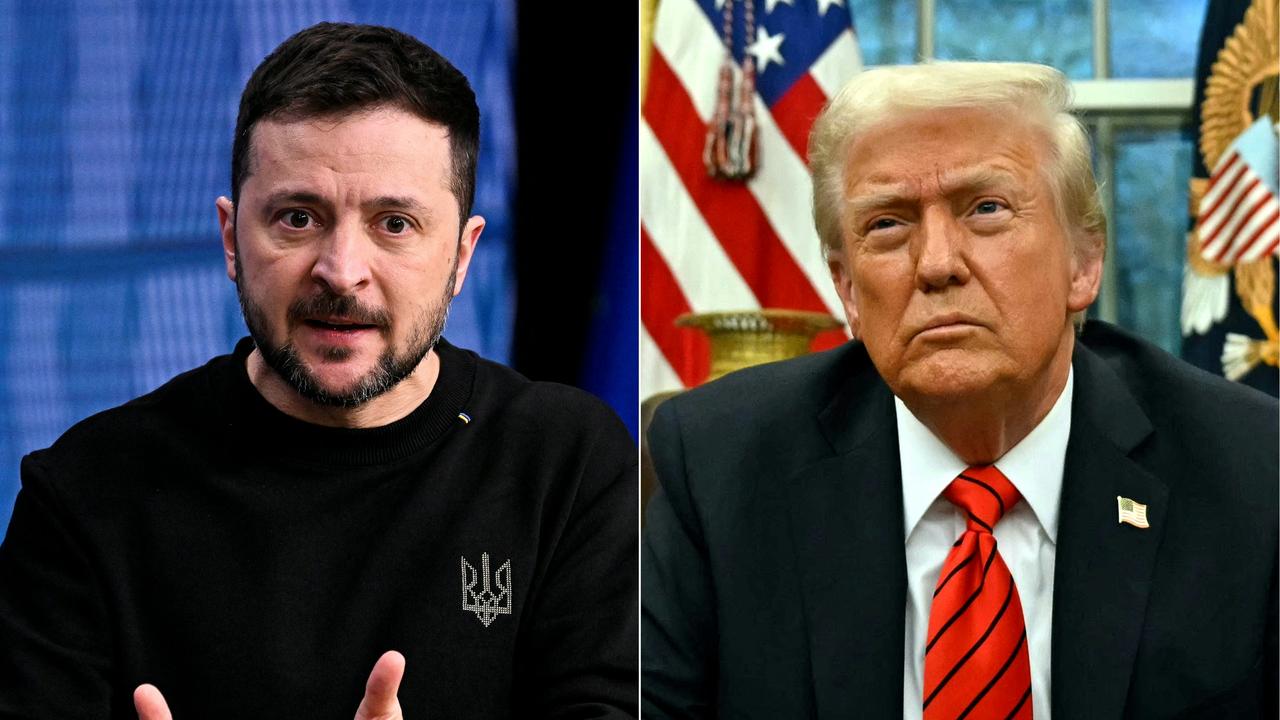
To join the conversation, please log in. Don't have an account? Register
Join the conversation, you are commenting as Logout